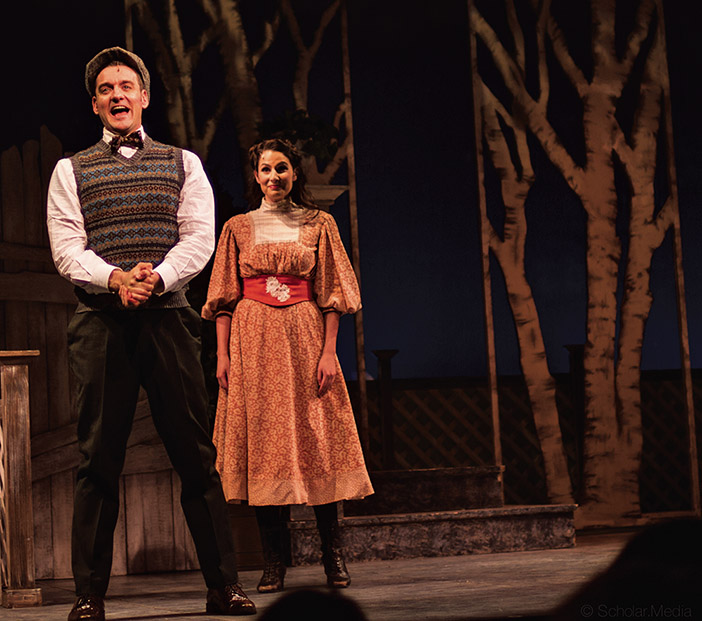


What would motivate Zalmen Mlotek to offer classes at a Tokyo University introducing spiritual songs of resistance composed during the Holocaust to Japanese students? Possibly, it relates to his father’s having been saved from the clutches of the European decimation by being provided with a transit visa by Japan’s consul Sugihara. Alternatively, it could be one part of his dual mission, as Artistic Director of the National Yiddish Theater Folkbiene (NYTF), to transmit the Yiddish culture and its rich cultural legacy worldwide.
The mission of the NYTF is fulfilled through sustaining Yiddish culture through the arts, bridging diverse communities through multicultural programming, dramatizing the Jewish experience, educating future artists and audiences and strengthening Jewish cultural identity in every generation.
In keeping with this last goal, that of spreading Jewish identity in every generation, a new immersion program for Russian Jewish toddlers and their parents called RUtots is held on Friday mornings at the Museum of Jewish Heritage. Exploration of visual arts, storytelling, dramatic play and even cooking classes are led by Russian-speaking early childhood educators. At the conclusion of each class, the children light Shabbat candles and recite the kiddush over grape juice, thus reinforcing their Jewish connection.This is just one way that NYTF is implementing its second mission—that of kiruv, or outreach.
NYTF claims a 100-year-old history as the longest, continuously running Yiddish theater company in the world. The Folksbiene, meaning “people’s stage,” is the sole survivor of 15 Yiddish theater companies that played to enthusiastic Jewish audiences on the Lower East Side during the Golden Age of Yiddish Theater in the early 20th century. In 1998, the Folksbiene Yiddish Theater became an independent non-profit and was renamed the National Yiddish Theater Folksbiene. Every season, the Folksbiene presents more than 100 programs to combined audiences of over 20,000 individuals. In 2015, the NYTF moved into its new venue, the Museum of Jewish Heritage in Battery Park, appropriately overlooking the Statue of Liberty. During its first year at the Museum, the production of “The Golden Bride,” an operetta, was played to wide audiences and accrued rave reviews and awards including the Drama Desk Nomination for Outstanding Revival and Outstanding Direction of a Musical.
A diversified array of programs will be presented by the NYTF in the coming months.
On New Year’s Day, Sunday, January 1, also coinciding with the last day of Chanukah, at 2 p.m., NYTF will present “Light Up the Night,” a retrospective of classic Yiddish songs that have been re-discovered through the efforts of YIVO. The works of major Yiddish composers of past eras will be sung by gifted singers, some from “The Golden Bride,” accompanied by a 16-piece orchestra conducted by Zalmen Mlotek.
Marking Martin Luther King’s Birthday on January 15, at 2 p.m., the NYTF will present “Soul to Soul,” a celebration of the music of Jewish and African-American cultures. Through this moving concert, the parallel experiences of two cultures on their paths to finding America’s promise of freedom while enduring segregation, prejudice and economic hardship will be explored. Songs of the civil rights movement of the 1960s will be presented.
In memory of recently departed, giant spokesman of the Holocaust, Elie Wiesel, an “International Tribute to Elie Wiesel: A Community Reading of ‘Night’” will be held on Sunday, January 29, beginning at 3 p.m. Reading segments of the world-famous memoir will be Elisha Wiesel; Israel Consul General Dani Dayan; French Ambassador Francois Delattre; and noted performers Joel Grey, Tova Feldshuh, Itzhak Perlman and Dr. Ruth Westheimer; as well as many other luminaries, friends and community leaders. Prior to the reading, Holocaust survivors will be sharing their histories in the Core Exhibition of the Museum. The Tribute will be live-streamed through www.mjhnyc.org/night. Admission is free but reservations are required.
“Kompot: Klez,” a feature of the ongoing series of workshops and performances for families of children ages 2-6, will host a program on Sunday, January 29, at 11 a.m. Presenter Dimitri Lepovich will engage the children and their parents in activities including making kompot, a fruity European dessert, as well as introducing them to the music of Klezmer.
Looking toward the Spring of 2017, on April 19, NYTF will be hosting a reading in Yiddish of the play “A Miracle in the Warsaw Ghetto,” written in the ghetto prior to the uprising. On May 21, “The Witch,” one of the earliest Yiddish operettas performed in the mid-1900s will be presented.
Mlotek’s sincere hope is that the programs offered through NYTF will reach the “neshama” of the audience. “Whether they are children or grandchildren of Yiddish-speaking predecessors or not, our programs are all about understanding the panorama and mosaic of Yiddish culture. We believe that by introducing young people to the humor, pathos and beauty of our past culture, they will be moved closer to Yiddishkeit. Although it is hard to compete with screens and media, we believe that live performances speak directly to the heart.”
All of the NYTF programs are presented at the Museum of Jewish Heritage, Edmond Safra Plaza, New York, NY 10280. For further information and to purchase tickets visit nytf.org/event.
By Pearl Markovitz













